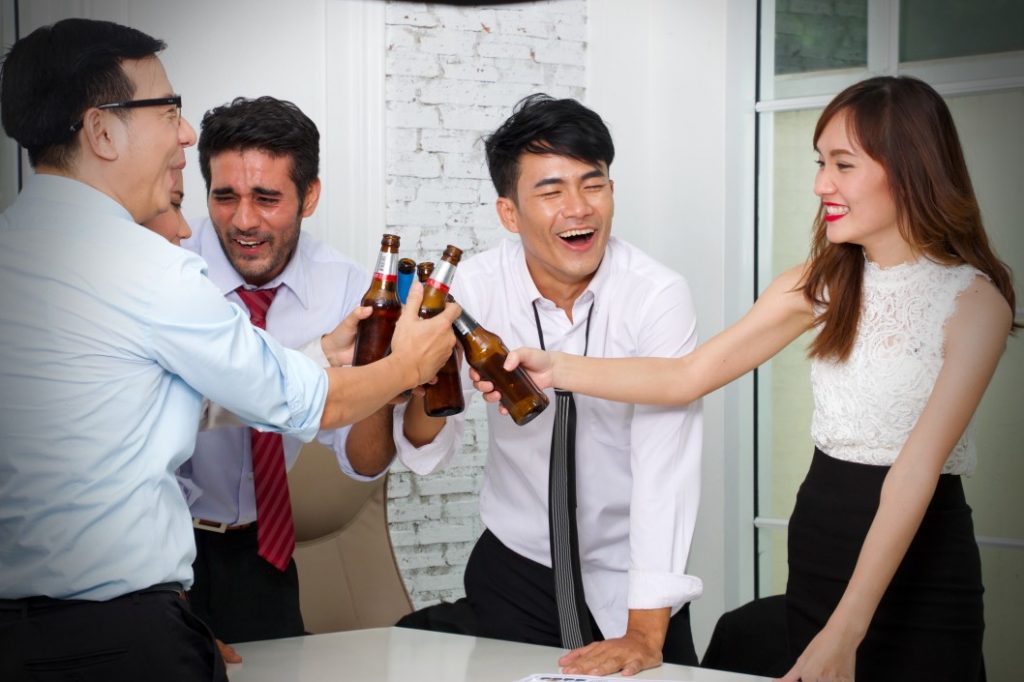Wannabe drinkers must splash out for an accompanying meal, while non-household can dine inside for 'business meetings'.
At the start of December, England was sorted in ‘tiers’, each with their own set of coronavirus rules. The majority of the country - 57 percent - ended up in Tier 2 (almost everyone else was in Tier 3, a more restrictive tier). That meant they could go out to pubs, restaurants and cafes again. However, there were restrictions. Just like before the November lockdown, non-households had to sit outside in groups of no more than six... unless they were there “for work purposes”, in which case they could sit inside in groups of up to thirty. There was also a new rule: you could no longer go out for just a drink. Instead, you had to order food if you wanted to consume alcohol.
The reasonings behind this hodgepodge of rules are varied. The outdoor rule is clearly about minimising Covid rates - science shows it’s much harder to transmit the virus in the open air. The business exemption seems to be more about helping the economy. Prime Minister Boris Johnson claimed it would help out freelancers and self-employed people who don’t have their own office space. And the business meetings that are conducted over expensive lunches in fancy London restaurants are likely to be high-level deals involving lots of money or big strategic business moves. Helping businesses like this chug along could have benefits: extra profits can be funneled to government taxes and staff wages, for example.
However, building this sort of loophole into the rules will strike some people as problematic. Business dining is disproportionately likely to be a thing for those who are employed in jobs that are white-collar, well paid and relatively senior. That means people who already have one advantage (being higher up the socioeconomic ladder) are getting access to another perk which many of their less-affluent peers are not. And this effect is compounded by the fact that it’s much easier to gain access to those high-level jobs in the first place if you come from a middle or upper-class background. It ends up kind of like an advantage snowball. For some, that’s just unfair.
A similar criticism has been lobbied at the no-booze-without-food rule. Eating out is generally a more expensive alternative to home cooking, which means most people can't afford to do it all the time. But the more money you have, the less of a big deal it will be to have to get a dinner every time you fancy a pint. On top of that, the requirement has forced most ‘wet’ pubs and bars (i.e. ones that don’t usually serve food) to close because they don’t have the resources (kitchens, chefs etc.) to meet the new rules. All in all, the rules seem certain to increase the already-shaky job insecurity of many hospitality workers... who, incidentally, don't have the sort of job that would give them access to the 'business lunch' perk.
Read our explainer on: socio-economic class.


